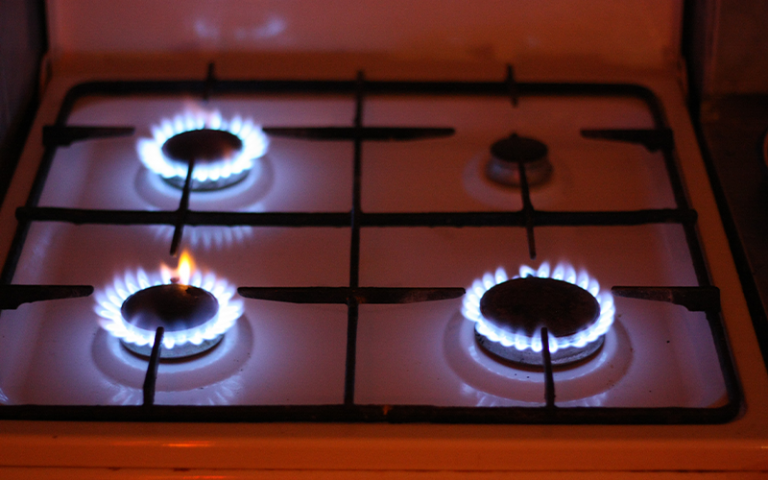Funded PhD: Multisensory and machine learning approach to identify drivers of indoor air quality
21 March 2022
Apply for this 4-year funded PhD Studentship in Developing a multisensory and machine learning approach to identify drivers of indoor air quality.

Context
Air pollution can be attributed to an estimated 8 million global deaths per year. Tacking air pollution and its impact upon human health therefore remains a key global challenge. At present, there are many unresolved questions regarding indoor air quality and the factors that influence it. In particular, there is emerging evidence that occupant behaviours and activities have a strong influence upon indoor air quality. However, to date it has been challenging to gather robust evidence.
The advancement of miniaturised, discrete and low-cost sensors alongside advancements in machine learning and analytical methods offers new promise in uncovering these behaviours. Using a multi-sensor approach (e.g. multiple air pollutants, temperature, humidity, light, sound, energy) and machine learning techniques, it is hypothesized that many key activities may be successfully identified from long-term, non-intrusive monitoring. For example, simultaneous peaks in particulate matter, nitrogen dioxide and humidity might indicate a particular cooking activity, with noise levels and energy data further indicating the use of an extractor hood.
Aims
The overall aim of this PhD would be to unlock these signatures to better understand the influence of occupant activities and behaviours upon indoor air quality. This would inform strategies for healthy and low-energy building design as well as improved operational strategies and ventilation practices. More specifically the PhD would aim to:
- Characterise the baseline signatures of key activities (cooking, cleaning, etc.).
- Develop multisensory monitoring approach for data collection.
- Identify and test appropriate machine learning techniques.
- Validate this approach and deploy in wider field studies.
Person specification
Applicants should meet the UCL Institute for Environmental Design and Engineering PhD Programme Entry Requirements
A minimum of an upper second-class UK Bachelor's degree and a Master's degree, or an overseas qualification of an equivalent standard, in a relevant subject, is essential. Exceptionally: where applicants have other suitable research or professional experience, they may be admitted without a Master's degree; or where applicants have a lower second-class UK Honours Bachelor's degree (2:2) (or equivalent) they must possess a relevant Master's degree to be admitted.
All applicants must also meet the minimum language requirements of UCL
Applicants should be familiar with the changes to EU and International Eligibility for UKRI funded studentships
Application procedure
Eligibility and how to apply
Please submit a pre-application by email to bseer-phd-admin@ucl.ac.uk with Subject Reference: 4-year PhD studentship A multisensory and machine learning approach to identify drivers of indoor air quality.
Your pre- application should include the following:
- A covering letter clearly stating why you wish to apply for the project outlining how your interests and experience relate to it, and confirm your understanding of Changes to EU and International Eligibility for UKRI funded studentships
- CV
- Complete the EPSRC fees and EDI questionnaire via the linked Microsoft Forms.
Interview process
Only shortlisted applicants will be invited for an interview.
- For the interview shortlisted candidates will be required to show proof of their degree certificate(s) and transcript(s) of degree(s), and proof of their fees eligibility
- The interview panel will consist of the project’s academic supervisors at UCL.
- The interview will include a short presentation from the candidate on their ideas of how to approach this PhD project.
- Following the interview, the successful candidate will be invited to make a formal application to the UCL Research Degree programme for the Institute for Environmental Design and Engineering (IEDE).
The Successful candidate will be undertaking this project in UCL at the main (Bloomsbury) campus and lab work may be conducted at UCL Here East (Stratford), For more information, please visit the UCL IEDE website.
Deadline
Sunday 24 April, 23:59 (UK Time)
Fair recruitment/appeals process
In line with EPSRC's updated terms and conditions, an appeals process is provided for unsuccessful applicants. There is always strong competition for funded studentships. If you receive a rejection for the applied position, it does not mean that you have been rejected for other funding opportunities or places at UCL you have applied to.
As applications are reviewed by panels of academic staff in a multi-step process, it will not be possible to request an appeal if you disagree with the outcome of your application on grounds of the academic assessment or judgement made.
However, if you think that the published process (as shown above) has not been followed, you may contact bseer-phd-admin@ucl.ac.uk to raise your concern. Please clearly mark your email EPSRC STUDENTSHIP PROCESS APPEAL in the subject line. Your appeal and application will be reviewed by a panel considering this new information.
Contact information
For further details about the admission process, please contact: bseer-phd-admin@ucl.ac.uk
For any further details regarding the project, contact Dr Samuel Stamp on samuel.stamp@ucl.ac.uk
Photo by Mykola Makhlai on Unsplash
 Close
Close

